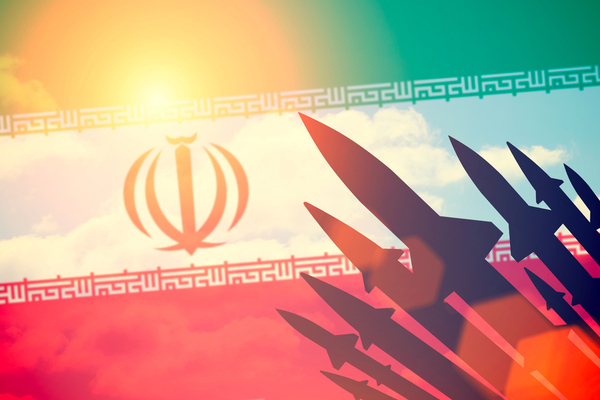For Tehran, it’s sufficient if Israeli prime time news leads off with the keywords “Iran” and “ballistic missiles.”
By Pesach Benson, World Israel News
Iran fired ballistic missiles — as many as 12 — at a U.S. diplomatic mission in Iraq in the early hours of Sunday morning.
The target was the U.S. consulate in Erbil, which is the capital of Iraq’s Kurdistan province. No casualties were reported. While initial reports said the consulate and adjacent buildings were damaged, U.S. and Iraqi officials said no buildings were damaged.
Although Israel isn’t really the issue, the Iranian Revolutionary Guards Corps, a designated terror group, claimed responsibility for the missile strike with a statement that took the unusual step of tying in the “Zionists.”
“Following the recent crimes of the fake Zionist regime and the previous announcement that the crimes and evils of this infamous regime will not go unanswered; Last night, the ‘Strategic Center of Conspiracy and Evil of the Zionists’ was targeted by powerful and point-to-point missiles of the IRGC,” said the IRGC statement.
It was presumably referring to an airstrike on Damascus attributed to Israel on March 7. According to the Syrian Observatory for Human Rights, the attack hit “a weapons and ammunition depot operated by Iran-backed militias near the Damascus International Airport.”
Two IRGC operatives were killed and Iran vowed revenge.
The IRGC statement following the consulate strike noted that further Israeli “evil” — that is to say, airstrikes in Syria — would face a “harsh, decisive and destructive response.”
Multiple messages
Most likely, the missile strike was an opportunity to send several messages at once.
Message to the Iranian populace: “We struck back at the Zionists.”
Tehran has struggled to exact revenge on Israel for the assassination of nuclear scientist Mohsen Fakhrizadeh, or for dozens of mysterious acts of sabotage at Iranian facilities real and imagined.
Striking a facility in Iraq and calling it a Mossad center is like firing bullets at a barn door and then painting bullseyes around the holes. Tehran didn’t offer any evidence of nefarious Mossad activities at a U.S. consulate. As far as Tehran’s concerned, repeating the claim reinforces the idea of the U.S. being the Great Satan along with the Israeli Little Satan.
Message to the JCPOA negotiators: “Before the war in Ukraine distracted you, we were close to finalizing a favorable nuclear deal. We’ll continue the thuggery until we close out the agreement.”
Tehran is deeply unhappy that the Russian invasion derailed the nuclear talks, and even more unhappy that Moscow wants written guarantees that its military and economic ties with Iran will not be impacted by the West’s anti-Russian sanctions.
But Iran would not dare to make any overt moves against Russia. Tehran can’t afford to alienate Moscow or endanger its status quo in Syria.
Message to the U.S.: “You were chased out of Afghanistan and we’ll chase you out of the Mideast. Now get out of Iraq so we can bring Iraq under our influence already.”
Presidents Joe Biden, Donald Trump and Barack Obama all sought to scale back the American military’s footprint in the world for close to two decades. Iran regarded this as a sign of weakness.
Ballistic missiles targeting a consulate well outside of working hours was just enough to remind the U.S. that the Mideast is a scary place — without being a mass casualty event that w0uld force Biden to order a harsh response.
Message to the Kurds: “Kurdish nationalism complicates our takeover of Iraq. If you push for independence and alliances with Israel, we can make it very painful for you.”
Message to Hafez Assad, Hezbollah, and the rest of the “Axis of Evil”: We have your back. We will deter the IDF from striking our weapons depots, drone factories, communication facilities etc. on Syrian soil.”
Message to Israel: “We have ballistic missiles and we’re not afraid to use them to send these kinds of messages.”
For Tehran, it’s sufficient if Israeli prime time news leads off with the keywords “Iran” and “ballistic missiles.”




